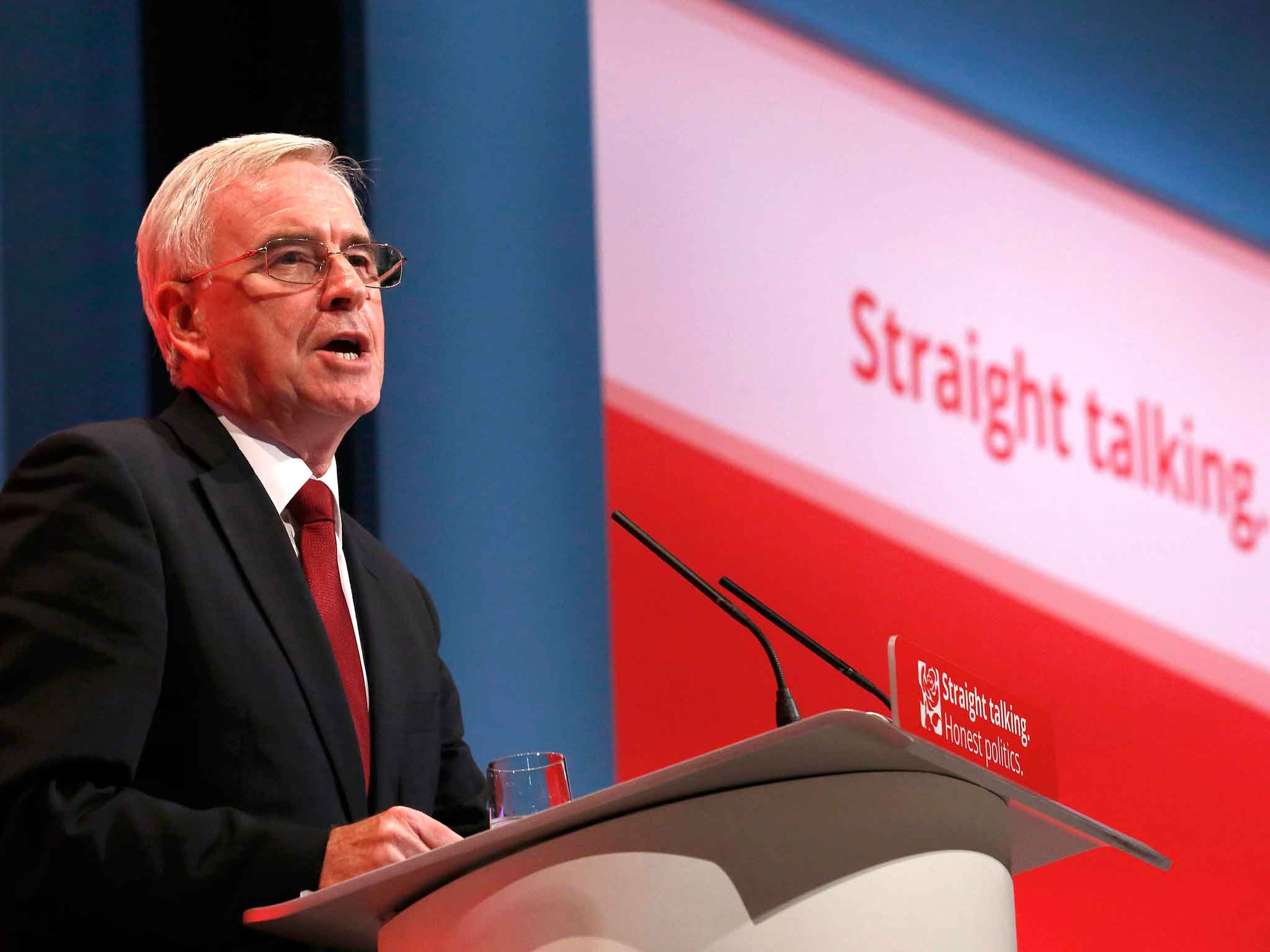Labour to force Google, Amazon and Starbucks to pay their ‘fair share of taxes’
- Shadow chancellor John McDonnell promises to launch an 'aggressive' pursuit of tax avoiders
- Mr McDonnell sets out a plan to retrieve £25bn in corporate tax avoidance

Labour will pursue an “aggressive” pursuit of tax avoiders as part of its pledge to run a balanced deficit, shadow chancellor John McDonnell has said.
He singled out Starbucks, Vodafone, Amazon and Google as companies a Jeremy Corbyn government would target to pay their “fair share of taxes”.
Mr McDonnell set out a plan to retrieve £25bn in corporate tax avoidance, claiming this was a fraction of the total £120bn “tax gap” between taxes due and sums collected.
Labour’s plan to balance the books will be aggressive
In his keynote economic speech to the Labour party conference – his first major moment since being appointed shadow chancellor by his close ally Mr Corbyn, he insisted Labour would make cuts to tackle the £95bn annual budget deficit, but said they would be pursued in a very different way to the Government’s approach.
He said that instead of policies such as the 1 per cent pay freeze on public sector workers and wide-ranging cuts to benefits and tax credits, a Labour government would target subsidies given to companies and landlords and cuts to “poverty-paying bosses”.
But he insisted that the welfare bill could come down by cutting spending on housing benefit by building affordable homes and tackling “exorbitant” rents.
£25bn
The amount Labour plan to retrieve in corporate tax avoidance
And promising a “fairer, more progressive taxation” framework, Mr McDonnell promised to lift the burden from middle and low-income earners, while also using quantitative easing to simulate the demand necessary to fuel growth.
He was laying out in more detail how he and Mr Corbyn plans to restore trust in Labour’s economic policy after surprising some by committing Labour to George Osborne’s fiscal charter, which will commit future governments to running a budget surplus in “normal times”.
The move, announced by the Chancellor in July’s budget, is expected to be voted on by MPs later this autumn.
Speaking to delegates at the Labour party conference in Brighton, Mr McDonnell said: “Labour’s plan to balance the books will be aggressive.
“We will force people like Starbucks, Vodafone, Amazon and Google and all the others to pay their fair share of taxes.
“Let me tell you also, there will be cuts to tackle the deficit but our cuts will not be the number of police officers on our streets or nurses in our hospitals or teachers in our classrooms. They will be cuts to the corporate welfare system.
“There will be cuts to subsidies paid to companies that take the money and fail to provide the jobs. Cut’s to the use of taxpayers money subsidising poverty paying bosses.
“Cuts to £13 billion tax breaks given to buy to let landlords for repairing their properties, whether they undertake the repairs or not. And cuts to the housing benefit bill when we build the homes we need and control exorbitant rents.”
He added: “Where money needs to be raised it will be raised from fairer, more progressive taxation. We will be lifting the burden from middle and low-income earners paying for a crisis they did not cause.
“If we inherit a deficit in 2020, fiscal policy will be used to pay down the debt and lower the deficit but at a speed that does not put into jeopardy sustainable economic growth. We’ll use active monetary policy to stimulate demand where necessary.”
Subscribe to Independent Premium to bookmark this article
Want to bookmark your favourite articles and stories to read or reference later? Start your Independent Premium subscription today.

Join our commenting forum
Join thought-provoking conversations, follow other Independent readers and see their replies